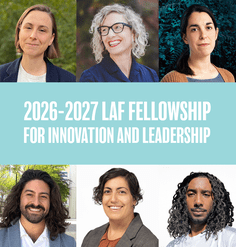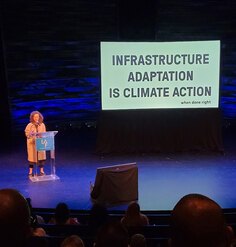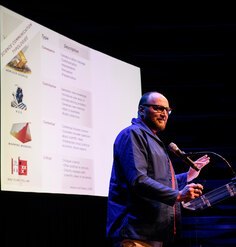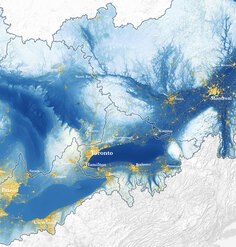Meet the 2018 National Olmsted Scholar and Finalists: The Graduates
The Landscape Architecture Foundation’s Olmsted Scholars Program is the premier leadership award program for landscape architecture students. The program honors students with exceptional leadership potential who are using ideas, influence, communication, service, and leadership to advance sustainable design and foster human and societal benefits.
Here, we showcase the 2018 graduate winner and finalists, who were announced in April after being selected from a group of 50 graduate students nominated by their faculty. The winner receives $25,000, and each finalist receives $5,000.
They are among the 85 LAF Olmsted Scholars named in 2018 and will be honored on October 18-19 in Philadelphia at a luncheon, LAF’s 33rd Annual Benefit, and a celebration of 10 years of the Olmsted Scholars Program.
National Olmsted Scholar Elizabeth Camuti of the University of Virginia
Elizabeth researches resiliency for communities facing relocation, due to climate change climate change and extreme weather, specifically the U.S. Virgin Islands and the city of New Orleans.
National Olmsted Scholar Finalist Rachel Ison of the University of Southern California
Rachel addresses the issues of lead contamination in vulnerable communities of Los Angeles and exploring alternative remediation strategies.
National Olmsted Scholar Finalist Steven Nuñez of the University of Texas, Arlington
Steven discusses urban agriculture as a means for achieving social, environmental, and economic equity.
National Olmsted Scholar Finalist Nicholas Jabs of the University of Pennsylvania
Originally from a small town in Minnesota, Nicholas has since lived in New Jersey, Arkansas, New York City, and Philadelphia. He is interested in the environmental and economic performance of working landscapes in middle American cities. At Penn, he has pursued this topic through independent research and a thesis project that explores how emerging forms of manufacturing can build on the region’s legacy of making and be leveraged to create new types of dynamic urban environments. His work also includes participating in the McHarg Center’s inaugural piece of research. The national study, “The Next 100 Million Americans,” illustrates the effects of a changing climate and population growth on development patterns and natural systems over the next half-century.











